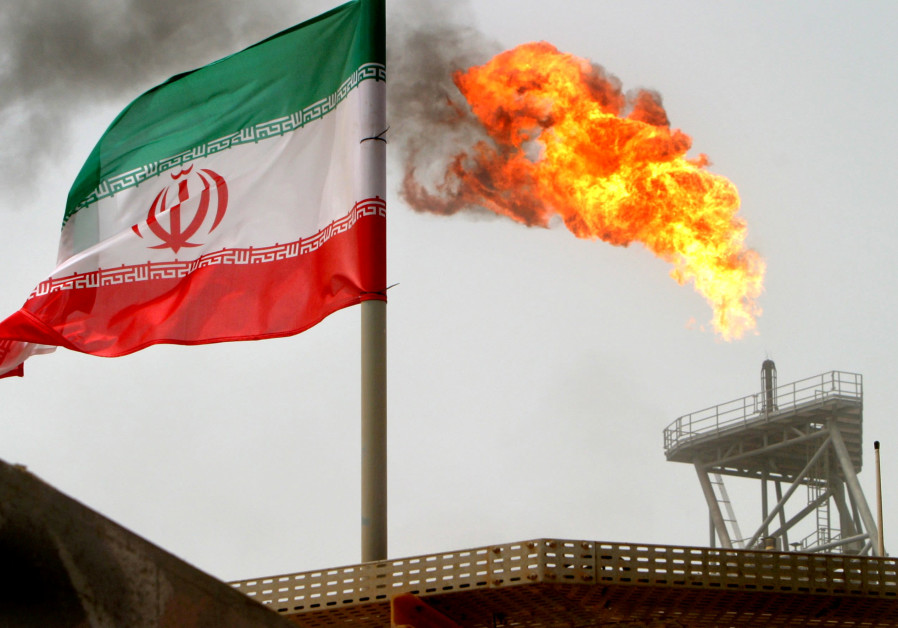Germany-Iran trade collapses under U.S. sanctions – report

A gas flare on an oil production platform in the Soroush oil fields is seen alongside an Iranian flag in the Persian Gulf, Iran, July 25, 2005. (photo credit: RAHEB HOMAVANDI/REUTERS)
BERLIN – Trade between Germany and Iran has collapsed under the impact of United States sanctions, data published by Funke newspapers showed, supporting Iran’s assertion that Europe is failing to help preserve the nuclear non-proliferation deal it signed.
Data from the German Chamber of Commerce showed that trade volumes between Iran and Europe’s largest economy were down 49% over the first four months of the year compared to the same period in 2018, with volumes continually declining.
The fall – to a total volume of 529 million euros – shows the impact of sanctions, imposed by the U.S. administration of President Donald Trump, that punish companies doing business with Iran by depriving them of access to the U.S. market.
There were some 60 German companies still doing business in Iran, according to Dagmar von Bohnstein, the Chamber’s representative in the the country, but they were increasingly working only with local staff.
European powers are keen to preserve the deal signed by Trump’s predecessor, which relaxed international sanctions on Iran in return for Tehran accepting curbs on its nuclear program that are designed to prevent it from developing nuclear weapons.
Tehran has said it pursued only a peaceful nuclear program.
European nations have tried to save the deal by maintaining some of its economic benefits despite U.S. sanctions. So far they have failed, with Iran largely shut out from oil markets and all major European companies cancelling plans to invest.
The latest data, showing that German exports to Iran were down 49 percent in the same period to 450 million euros, lend weight to Iran’s insistence that Europe’s efforts are having too little impact for it to be worth Tehran sticking to the agreement.
Join Jerusalem Post Premium Plus now for just $5 and upgrade your experience with an ads-free website and exclusive content. Click here>>






Comments are closed.